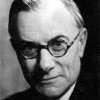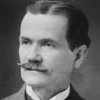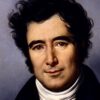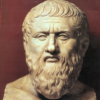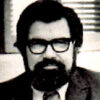Study the historian before you begin to study the facts. This is, after all, not very abstruse. It is what is already done by the intelligent undergraduate who, when recommended to read a work by that great scholar Jones of St. Jude’s, goes round to a friend at St. Jude’s to ask what sort of chap Jones is, and what bees he has in his bonnet. When you read a work of history, always listen out for the buzzing. If you can detect none, either you are tone deaf or your historian is a dull dog. The facts are really not at all like fish on the fishmonger’s slab. They are like fish swimming about in a vast and sometimes inaccessible ocean; and what the historian catches will depend partly on chance, but mainly on what part of the ocean he chooses to fish in and what tackle he chooses to use – these two factors being, of course, determined by the kind of fish he wants to catch. By and large, the historian will get the kind of facts he wants. History means interpretation.
E. H. Carr (1892-1982) British historian, journalist, international relations theorist [Edward Hallett "Ted" Carr]
What Is History?, ch. 1 (1961)
(Source)
Quotations about:
analysis
Note not all quotations have been tagged, so Search may find additional quotes on this topic.
There’s many a slip betwixt the observation and the conclusion.
Austin O'Malley (1858-1932) American ophthalmologist, professor of literature, aphorist
Keystones of Thought (1914)
(Source)
It is a curious accident of history that the Christian religion became heavily involved with theology. No other religion finds it necessary to formulate elaborately precise statements about the abstract qualities and relationships of gods and humans. […] The idea that God may be approached and understood through intellectual analysis is uniquely Christian.
Freeman Dyson (1923-2020) English-American theoretical physicist, mathematician, futurist
The Scientist as Rebel, Part 4, ch. 25 “Is God in the Lab?” (2006)
(Source)
Originally published in New York Review of books (1998-05-28).
Although our intellect always feels itself urged towards clearness and certainty, still our mind often feels itself attracted by uncertainty. Instead of threading its way with the understanding along the narrow path of philosophical investigations and logical conclusions, in order almost unconscious of itself, to arrive in spaces where it feels itself a stranger, and where it seems to part from all well known objects, it prefers to remain with the imagination in the realms of chance and luck.
[Obgleich sich unser Verstand immer zur Klarheit und Gewißheit hingedrängt fühlt, so fühlt sich doch unser Geist oft von der Ungewißheit angezogen. Statt sich mit dem Verstande auf dem engen Pfade philosophischer Untersuchung und logischer Schlußfolgen durchzuwinden, um, seiner selbst sich kaum bewußt, in Räumen anzukommen, wo er sich fremd fühlt, und wo ihn alle bekannten Gegenstände zu verlassen scheinen, weilt er lieber mit der Einbildungskraft im Reiche der Zufälle und des Glücks.]
Karl von Clausewitz (1780-1831) Prussian soldier, historian, military theorist
On War [Vom Kriege], Book 1, ch. 1 “What Is War? [Was ist der Krieg?],” § 22 (1.1.22) (1832) [tr. Graham (1873)]
(Source)
(Source (German)). Alternate translations:
Although our intellect always feels itself urged toward clarity and certainty, our mind still often feels itself attracted by uncertainty. Instead of threading its way with the intellect along the narrow path of philosophical investigation and logical deduction, in order almost unconsciously, to arrive in spaces where it finds itself a stranger and where all familiar objects seem to abandon it, it prefers to linger with imagination in the realms of chance and luck.
[tr. Jolles (1943)]
Although our intellect always longs for clarity and certainty, our nature often finds uncertainty fascinating. It prefers to day-dream in the realms of chance and luck rather than accompany the intellect on its narrow and tortuous path of philosophical enquiry and logical deduction only to arrive -- hardly knowing how -- in unfamiliar surroundings where all the usual landmarks seem to have disappeared.
[tr. Howard & Paret (1976)]
… To divide each of the difficulties under examination into as many parts as possible, and as might be necessary for its adequate solution.
[… De diviser chacune des difficultés que j’examinerais, en autant de parcelles qu’il se pourroit, et qu’il seroit requis pour les mieux résoudre.]
René Descartes (1596-1650) French philosopher, mathematician
Discourse on Method [Discours de la méthode], Part 2 (1637) [tr. Veitch (1850)]
(Source)
(Source (French)). Alternate translations:
... To divide every One of these difficulties, which I was to examine into as many parcels as could be, and, as was requisite the better to resolve them.
[Newcombe ed. (1649)]
... To divide up each of the difficulties which I examined into as many parts as possible, and as seemed requisite in order that it might be resolved in the best manner possible.
[tr. Haldane & Ross (1911)]
... To divide each problem I examined into as many parts as was feasible, and as was requisite for its better solution.
[tr. Ascombe & Geach (1971)]
... To divide each of the difficulties I examined into as many parts as possible, and as may be required in order to resolve them better.
[tr. Cottingham, Stoothoff (1985)]
Divide each difficulty into as many parts as is feasible and necessary to resolve it.
Historians can sometimes explain, or at any rate discuss the immediate causes of some great event. Beyond that they can do little more than arrive at the platitude that every generation is, to some extent, responsible for what happened afterwards. In this way, we can finally reach the preposterous conclusion that the ancient Romans were responsible for the First World War, when they failed to civilize the Germans. This is sometimes called learning from history.
A. J. P. Taylor (1906-1990) British historian, journalist, broadcaster [Alan John Percivale Taylor]
“What Else Indeed?” New York Review of Books (5 Aug 1965)
(Source)
In the popular imagination, the belief persists that history involves little more than reconstruction, a retelling of the past “as it actually was.” But historical understanding involves far more than mere empiricism; it demands a readiness to draw back from the facts to reflect on their significance and their interconnection.
Peter E, Gordon (b. 1966) American intellectual historian
“Why Historical Analogy Matters,” New York Review of Books (7 Jan 2020)
(Source)
Such is the privilege of genius; it perceives, it seizes relations where vulgar eyes see only isolated facts.
[Tel est le privilége du génie: il aperçoit, il saisit des rapports, là où des yeux vulgaires lie voient que des faits isolés.]
François Arago (1786-1853) French Catalan mathematician, physicist, astronomer, politician
Biographies of Distinguished Scientific Men, “Joseph Fourier” (1859) [tr. Smyth, Powell, Grant]
(Source)
Talking about music is like dancing about architecture.
Martin Mull (b. 1943) American actor, comedian
(Attributed)
Many people have put many hours into determining the origin of this quotation, but the best evidence at present points to Mull, in or before early 1979. See:
But everyone assumes causation when they should be thinking coincidence, and correlation when they should be asking whether Twitter is really a reliable source of information.
The path of sound credence is through the thick forest of skepticism.
George Jean Nathan (1892-1958) American editor and critic
Materia Critica, “Critic and Criticism,” sec. 4 (1924)
(Source)
The difference between a conviction and a prejudice is that you can explain a conviction without getting angry.
(Other Authors and Sources)
Anonymous
No definitive source is found for this quotation. Frequently attributed to Gregory Benford, Deeper than the Darkness (1970), but it has shown up anonymously at least as early as 1951 as "filler" material in periodicals. Also sometimes attributed to Samuel Butler or Dorothy Sarnoff, but not with any citation.
You can discover more about a person in an hour of play than in a year of conversation.
Plato (c.428-347 BC) Greek philosopher
(Spurious)
Frequently attributed to Plato, starting in the 1950s, but not found in his works. Earliest citation is as a Portuguese proverb, in A Polyglot of Foreign Proverbs, tr. Henry G. Bohn (1857): "Mais descobre huma hora de jogo, que hum anno de conversação." For more see here.
You sit at the board and suddenly your heart leaps. Your hand trembles to pick up the piece and move it. But what chess teaches you is that you must sit there calmly and think about whether it’s really a good idea and whether there are other, better ideas.
If poetry is like an orgasm, an academic can be likened to someone who studies the passion-stains on the bedsheets.
Irving Layton (1912-2006) Romanian-Canadian poet [b. Israel Pincu Lazarovitch]
“Obs II,” The Whole Bloody Bird (1969)
(Source)
You can spend minutes, hours, days, weeks, or even months over-analyzing a situation; trying to put the pieces together, justifying what could’ve, would’ve happened. … Or you can just leave the pieces on the floor and move the fuck on.
There are three kinds of lies: lies, damned lies, and statistics.
Benjamin Disraeli (1804-1881) English politician and author
(Attributed)
(Source)
Attributed by Mark Twain in "Chapters from My Autobiography" (Apr 1904), North American Review (7 Sep 1906): "Figures often beguile me, particularly when I have the arranging of them myself; in which case the remark attributed to Disraeli would often apply with justice and force: 'There are three kinds of lies: lies, damned lies, and statistics.'"
The phrase has not been found in any of Disraeli's works, and he is considered unlikely to be the originator. Variants of the phrase date back a century or more from Twain's reference. More discussion about this quotation here:
What I mean is that if you really want to understand something, the best way is to try and explain it to someone else. That forces you to sort it out in your mind. And the more slow and dim-witted your pupil, the more you have to break things down into more and more simple ideas. And that’s really the essence of programming. By the time you’ve sorted out a complicated idea into little steps that even a stupid machine can deal with, you’ve learned something about it yourself.
More important than any belief a man holds is the way he holds it. Any fool or fanatic can embrace a doctrine. Even if true, it remains a dogma unless it is evaluated in the light of its alternatives, and the relevant evidence for them.
If thy Business be perplexed, divide it, and look upon all its Parts and sides.
Thomas Fuller (1654-1734) English physician, preacher, aphorist, writer
Introductio ad Prudentiam, # 583 (1725)
(Source)
When a mess, which is a system of problems, is taken apart, it loses its essential properties and so does each of its parts. The behavior of a mess depends more on how the treatment of its parts interact than how they act independently of each other. A partial solution to a whole system of problems is better than whole solutions of each of its parts taken separately.
Humor can be dissected, as a frog can, but the thing dies in the process and the innards are discouraging to any but the purely scientific mind.
E. B. White (1899-1985) American author, critic, humorist [Elwyn Brooks White]
“The Preaching Humorist,” The Saturday Review of Literature (18 Oct 1941)
The apparent origin of "Analyzing humor is a bit like dissecting a frog: You learn how it works but you end up with a dead frog" (and variants). Also attributed to Mark Twain (not found in his writing) and André Maurois (who said something similar in 1960). See here for more.
I do not deny that most managers lack a good deal of information that they should have, but I do deny that this is the most important informational deficiency from which they suffer. It seems to me that they suffer more from an overabundance of irrelevant information.
He didn’t say “That’s weird.” He wouldn’t have said “That’s weird” if a flock of sheep had cycled past playing violins. It wasn’t the sort of thing a responsible engineer said.
Terry Pratchett (1948-2015) English author
Good Omens, 4. “Thursday” (1990) [with Neil Gaiman]
(Source)
You do not really understand something unless you can explain it to your grandmother.
Albert Einstein (1879-1955) German-American physicist
(Attributed)
Alternate versions:No source found. The quote is frequently also attributed to Richard Feynman. It is likely based on a similar quote by Ernest Rutherford.
- "If you can't explain something to a six-year-old, you really don't understand it yourself."
- "If you can't explain it simply, you don't understand it well enough."
The closest reference to it can be found in Ronald W. Clark, Einstein: The Life and Times (1972):
To de Broglie, Einstein revealed an instinctive reason for his inability to accept the purely statistical interpretation of wave mechanics. It was a reason which linked him with Rutherford, who used to state that "it should be possible to explain the laws of physics to a barmaid." Einstein, having a final discussion with de Broglie on the platform of the Gare du Nord in Paris, whence they had traveled from Brussels to attend the Fresnel centenary celebrations, said "that all physical theories, their mathematical expressions apart ought to lend themselves to so simple a description 'that even a child could understand them.'"
More discussion of this quotation here.
All are lunatics, but he who can analyze his delusion is called a philosopher.
Ambrose Bierce (1842-1914?) American writer and journalist
The Collected Works of Ambrose Bierce, Vol. 8, “Epigrams” (1911)
(Source)

